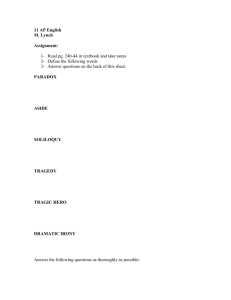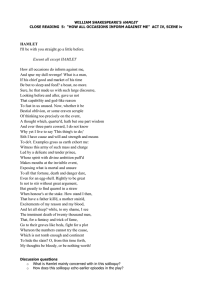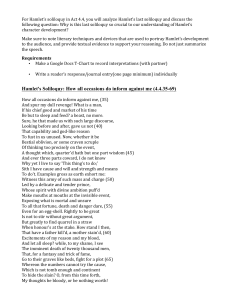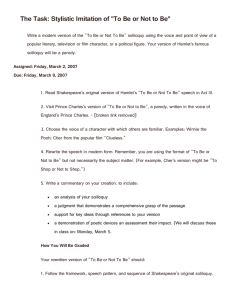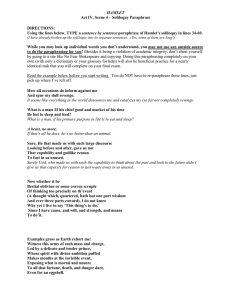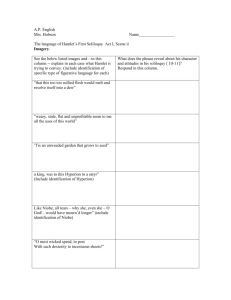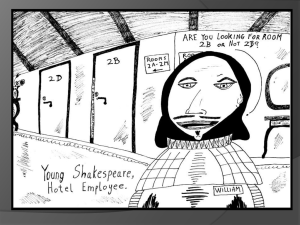Aside
advertisement
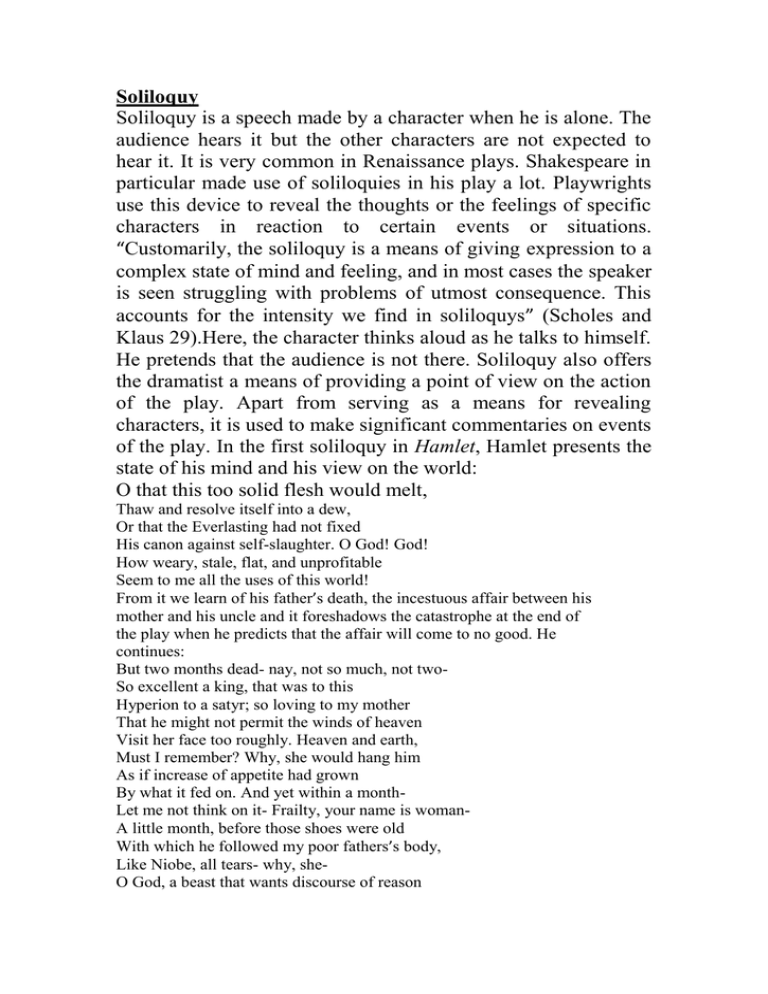
Soliloquy Soliloquy is a speech made by a character when he is alone. The audience hears it but the other characters are not expected to hear it. It is very common in Renaissance plays. Shakespeare in particular made use of soliloquies in his play a lot. Playwrights use this device to reveal the thoughts or the feelings of specific characters in reaction to certain events or situations. “Customarily, the soliloquy is a means of giving expression to a complex state of mind and feeling, and in most cases the speaker is seen struggling with problems of utmost consequence. This accounts for the intensity we find in soliloquys” (Scholes and Klaus 29).Here, the character thinks aloud as he talks to himself. He pretends that the audience is not there. Soliloquy also offers the dramatist a means of providing a point of view on the action of the play. Apart from serving as a means for revealing characters, it is used to make significant commentaries on events of the play. In the first soliloquy in Hamlet, Hamlet presents the state of his mind and his view on the world: O that this too solid flesh would melt, Thaw and resolve itself into a dew, Or that the Everlasting had not fixed His canon against self-slaughter. O God! God! How weary, stale, flat, and unprofitable Seem to me all the uses of this world! From it we learn of his father’s death, the incestuous affair between his mother and his uncle and it foreshadows the catastrophe at the end of the play when he predicts that the affair will come to no good. He continues: But two months dead- nay, not so much, not twoSo excellent a king, that was to this Hyperion to a satyr; so loving to my mother That he might not permit the winds of heaven Visit her face too roughly. Heaven and earth, Must I remember? Why, she would hang him As if increase of appetite had grown By what it fed on. And yet within a monthLet me not think on it- Frailty, your name is womanA little month, before those shoes were old With which he followed my poor fathers’s body, Like Niobe, all tears- why, sheO God, a beast that wants discourse of reason Would have mourned longer- married with my uncle,… She married- O most wicked speed! To post With such dexterity to incestuous sheets! It is not, and it cannot come to good Break my heart, for I must hold my tongue. (Act i scene ii) Aside Aside is a dramatic convention in which a character speaks to himself or makes a comment in the presence of another character. However, that other character is not expected to hear the comment but the audience hears it. There is an actual stepping aside of the character who utters an aside from the other characters on the stage. This makes it more unrealistic because it is not possible for him to make the remark in their presence and they will not hear it. An aside is a very brief remark and in most cases it is indicated in the stage direction. Here is an example taken from Hamlet when Hamlet feigns madness and is discussing with Polonius: POL. [Aside] Though this is madness, yet there is method in it. Will you walk out of the air my lord?

